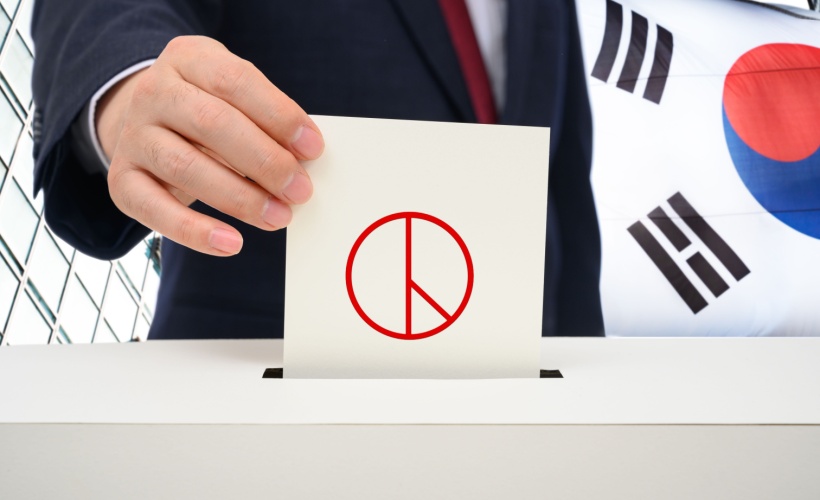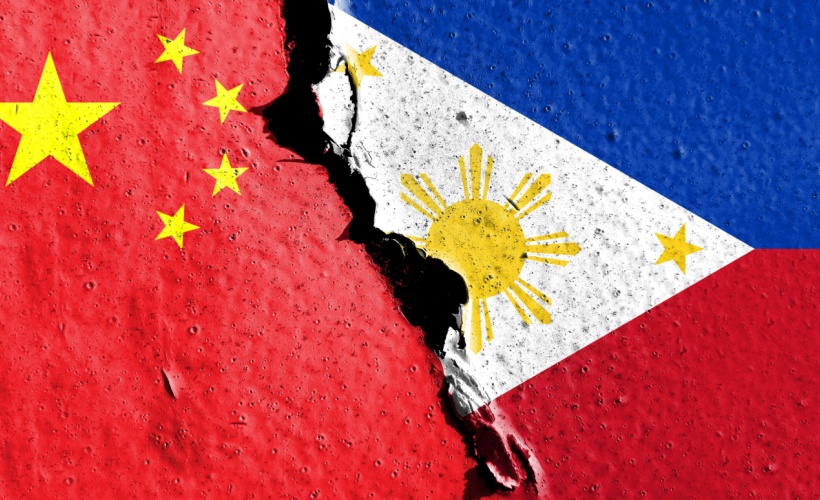By Patrick McAlary, Research Assistant
On 22 June 2023, the Centre for Geopolitics hosted a panel to reflect on an event held earlier in the day that simulated how the UK would respond to a geopolitical crisis in the South China Sea and to discuss the UK’s strategic interests in the region. The panel was chaired by Suzanne Raine (Affiliated Lecturer at the Centre for Geopolitics) and consisted of Amber Rudd (Home Secretary, 2016–18), Professor William Hurst (Chong Hua Professor of Chinese Development), and Dr Thomas Grant (Faculty of Law).
The simulation: A crisis in the South China Sea
The simulation events, run under the auspices of the Centre for Geopolitics, set participants in the COBR meeting room as the UK responds to a growing geopolitical crisis in an area where the UK has a strategic interest. As the scenario unfolds participants must respond to injects which can range from intelligence reports to rogue tweets that shift the dynamics at play. The event is designed to emulate the feel and tone of the discussions that would take place if a real-life crisis was unfolding and provides MPhil students with an opportunity to work alongside academics, practitioners, and other connected experts to get a sense of how ‘being in the room’ contrasts to theory.
This was the first simulation set in the Indo-Pacific region: the scenario was that a British civilian research vessel had broken down in the disputed waters of the South China Sea and was assisted by a Chinese vessel and then escorted to a Chinese facility. This was set against the backdrop of rising tensions related to Taiwan and an upcoming US presidential election where the President had been incapacitated due to illness forcing the UK to test its resolve in the region alone.
The UN Convention on the Law of the Sea (UNCLOS)
Dr Tom Grant, who played the role of Attorney General in the simulation event, explained that the international law of the South China Sea boils down to the UN Convention on the Law of the Sea (UNCLOS). China has had a longstanding historical assertion of its sovereign rights in the South China Sea, as reflected by the so-called ‘nine dash line’ which refers to a set of line segments on various maps that outline China’s claims in the region. However, a 2016 tribunal found in favour of the Philippines against China’s ‘historic rights’ over most of the South China Sea, prompting China to come up with a novel explanation for its position in the region. Namely, if one draws a line connecting the many small islands in the Spratly area in the south and the Paracel Islands in the north, it creates a grand block and, according to UNCLOS, one can assert archipelagic baseline rights. However, such rights can only be asserted by an archipelagic state, which China is not and thus, as Dr Grant pointed out, its claims sit far outside the law.
The UK has affirmed this position and Dr Grant noted that the UK could articulate its interests in the region as a guarantor and beneficiary of UNCLOS. In terms of the simulation event, the UK research vessel was impounded near Mischief Reef which is in the Exclusive Economic Zone of the Philippines and an area subject to navigational freedom: in other words, the research vessel had a right to be minding its own business. This provided important context, as Suzanne Raine pointed out, the simulation highlighted difficulties in interpreting the intentions of other actors. The possibility that China had been acting altruistically, responding to a vessel in need, or that the action had been taken by a local actor without sanction from the centre, remained possibilities and participants had to balance these considerations as they decided to escalate or to de-escalate.
The UK’s strategic interest in the region?
One thing that became clear during the simulation is that beyond securing the return of British citizens on the research vessel (‘the 21’ as they became known), it is not clear what the UK national security interest in the region is. As Professor William Hurst noted, there are clear economic interests given that so much trade passes through the region, but the UK needs to articulate to itself, and to the world, what its security interest in the region actually is and what kinds of trade-offs it is willing to make in pursuit of that interest.
This was thrown into stark relief when, as in the simulation, the UK is unable to lean on the US for direction. As Amber Rudd pointed out, the UK’s position is what is the American view and how can we influence it; however, she argued that this is not necessarily a bad thing and it is important that the West is able to work as a unit in an area where the UK’s independent agency is curtailed.
A China-Centric focus
As Amber Rudd pointed out, in the simulation it became clear that the UK’s foreign policy in the region is almost entirely fixed on China. Thus, there was a temptation to link the crisis at hand (securing the safe return of ‘the 21’) with the macro scenario (tensions in relation to Taiwan). Professor Hurst warned that while the issues could be linked, this was not a given and it is not necessarily productive to link them. There is a temptation to view all relationships in South East Asia through the prism of the UK’s bilateral relationship with China. However, there are a range of important partners that the UK could engage with, not just Japan, South Korea, and Australia, but also Singapore, Malaysia, Indonesia, Thailand, and even Vietnam. Professor Hurst suggested that a multilateral (or perhaps multifaceted) approach, or even a serially bilateral approach, to different regional actors, may be more productive than thinking in terms of a grand game where China is pit against others.







